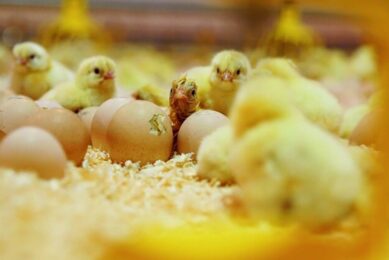New technique to create genetically modified chickens

Genetically modified chickens, created by Origen Therapeutics in California, could build future flocks of birds that lay eggs with therapeutic contents – feathered medicine factories that are cost-effective, clean and potentially life-saving. This was unveiled in Thursday’s issue of the journal Nature.
Last summer, Origen built chickens with human genes that lay eggs carrying custom-made human ‘monoclonal antibodies’ to fight cancer. While important, this was a laborious bird-by-bird procedure.
Transplanting genes from one species to another has become almost routine, as gene-altered animals have entered a commercial era.
What’s different about these new birds is that they carry inserted genes in their sperm or egg, so the alteration is passed on to future generations. Origen won’t say how many they’ve created, citing proprietary concerns.
“Once we introduce a genetic change, all the offspring and their offspring will carry that modification,” said Robert Kay, chief executive of Origen Therapeutics.
For now, the new gene doesn’t do much. It is simply a fluorescent green ‘marker’ gene, which causes the birds to glow in the dark under ultraviolet light. But it proves that the new technique works.
The next step is to create birds with genes for a wide array of different monoclonal antibodies, which could then be tested as therapeutic tools. By lowering the cost of producing each antibody, many more can be tested.
The birds are White Leghorns worth hundreds of thousands of dollars each. To get the volume of monoclonal antibodies needed for commercialisation, Origen seeks to build a flock of 5,000 to 10,000 birds.
Once a line of birds is well-established, breeding is relatively cheap, said McKay. He asserts that the cost of maintaining them will cost far less than other biotech production facilities – an estimated $20 million for a facility of 10,000 birds.
Germline modification, as the procedure is called, has been achieved in mice, as well. But because they don’t lay eggs, Origen believes they have less commercial potential.
But such techniques are barred in humans in the United States, England and much of the rest of the world, due to fears that someone will attempt to re-engineer the collective inheritance of the entire species.
The chicken research ruffles the feathers of animal rights advocates, which object to the mass production of chickens in general. But Origen maintains that they’re healthy and happy chickens.
“They look and act like any other chicken you might find,” said Kay. “But they never get near a grocery store.”
Join 31,000+ subscribers
Subscribe to our newsletter to stay updated about all the need-to-know content in the poultry sector, three times a week. Beheer
Beheer








 WP Admin
WP Admin  Bewerk bericht
Bewerk bericht